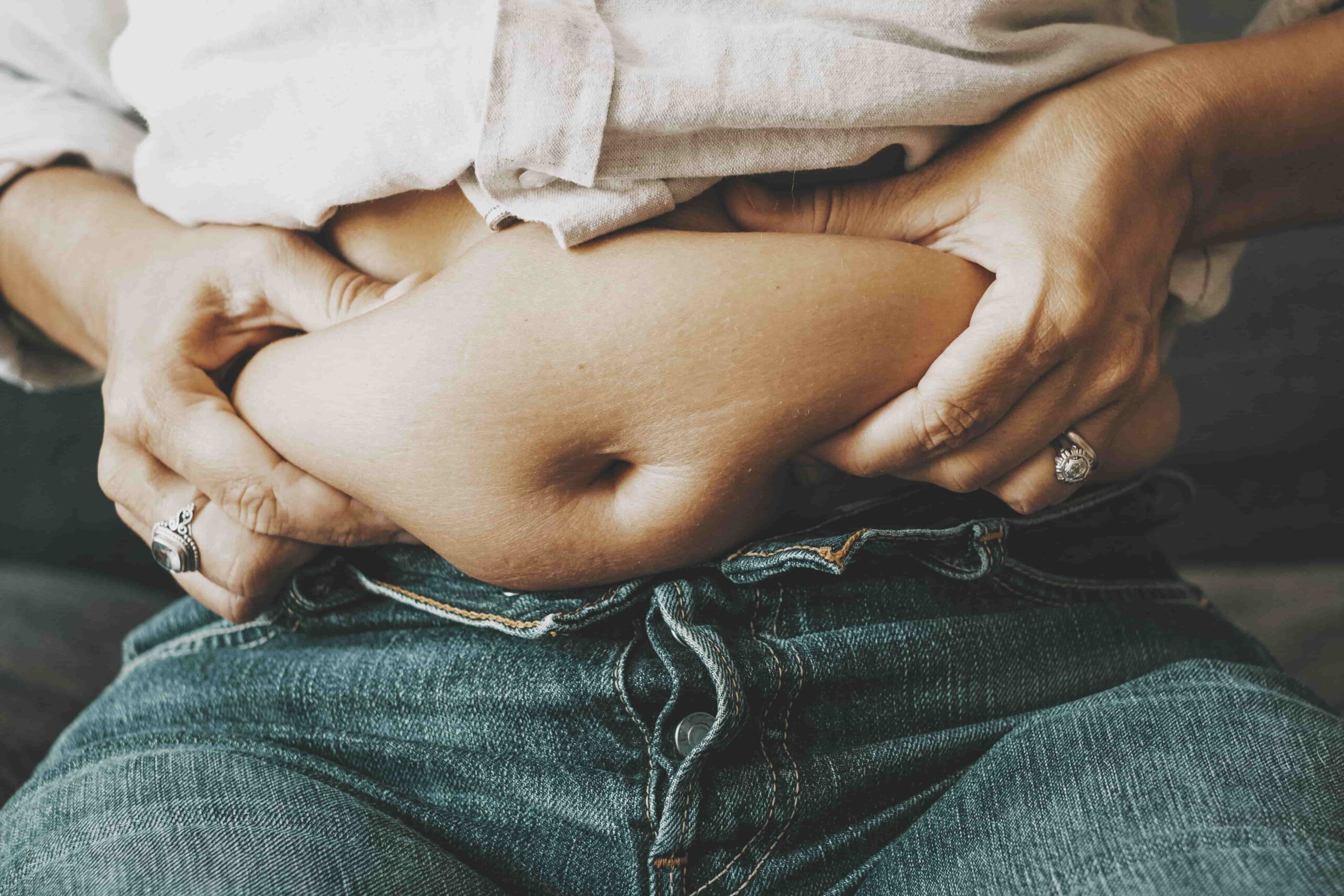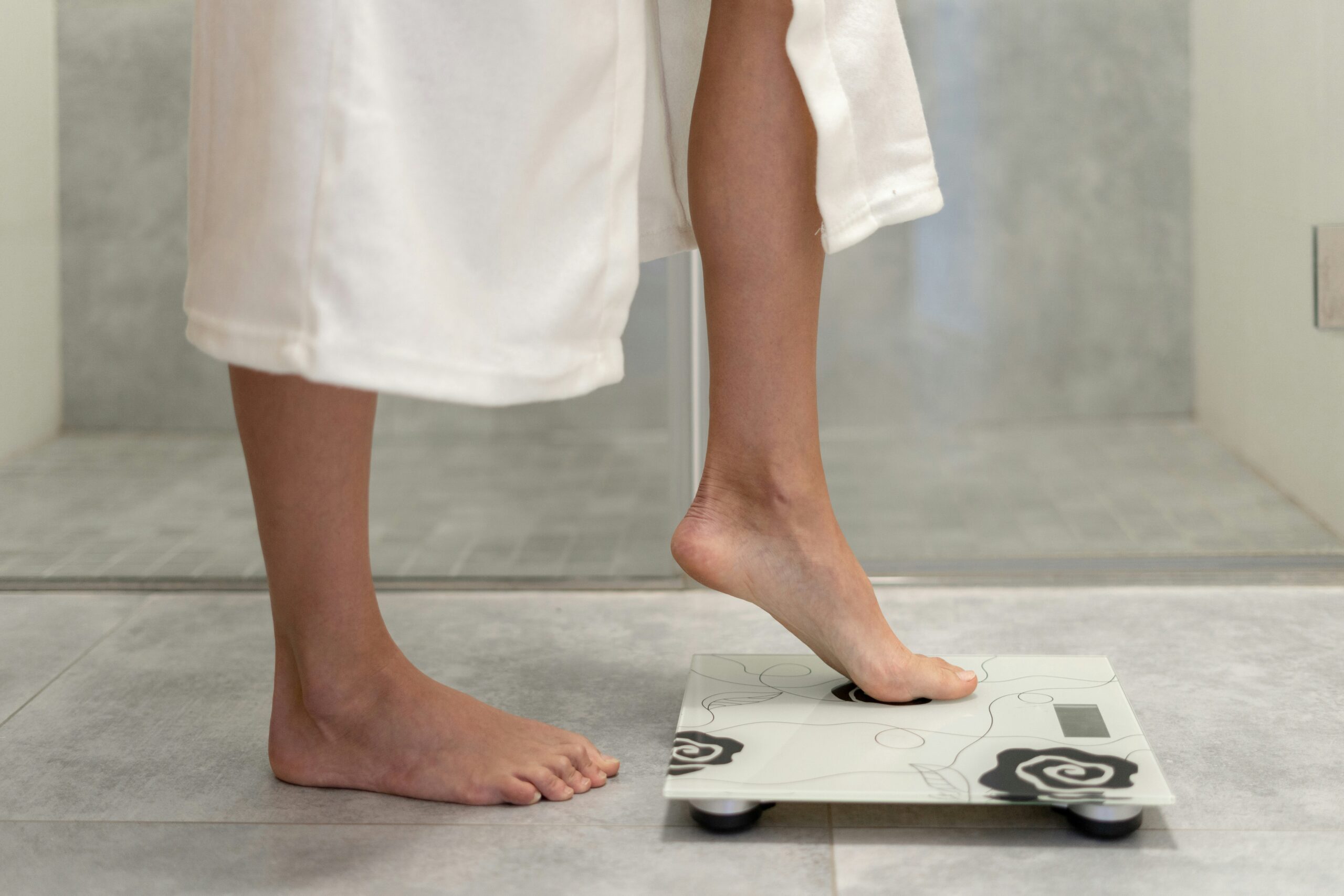Upper belly fat, often referred to as visceral fat, can be a concern for many women. Not only does it affect one’s appearance, but it’s also linked to various health risks. Fortunately, there are effective strategies to tackle this issue and promote overall well-being.
Let’s delve into the science behind upper belly fat, explore the causes specific to females, and provide practical methods to lose it.
Understanding Upper Belly Fat
Upper belly fat, scientifically known as visceral fat, is the type of fat that accumulates around your abdominal organs, such as the liver, pancreas, and intestines. Unlike subcutaneous fat (found just beneath the skin), visceral fat poses a greater threat to health due to its proximity to vital organs.
The Causes of Upper Belly Fat in Females
Several factors contribute to the accumulation of upper belly fat in females. These factors can interact and vary from person to person:
Hormones
Hormonal changes, especially during menopause, can lead to an increase in upper belly fat. Estrogen levels decrease during menopause, causing fat to be redistributed from the hips and thighs to the abdominal area.
Genetics
Genetic predisposition plays a role in determining where your body tends to store fat. If your family has a history of carrying weight in the upper belly area, you might be more prone to this pattern.
Lifestyle factors
Sedentary behavior and a lack of physical activity can contribute to the accumulation of upper belly fat. Regular exercise helps burn calories and promotes overall fat loss, including visceral fat.
Diet
Consuming a diet high in refined carbohydrates, sugary foods, and trans fats can lead to weight gain, especially in the abdominal region. These foods contribute to insulin resistance and inflammation, both of which are linked to visceral fat.
Stress
Chronic stress can trigger the release of cortisol, a hormone that promotes fat storage, particularly in the abdominal area. This is why stress management is crucial for preventing upper belly fat.
Effective Strategies to Get Rid of Upper Belly Fat
This stubborn accumulation of visceral fat not only impacts our appearance but also our overall well-being. The good news is that science offers a clear path forward.
By adopting effective strategies tailored to target upper belly fat, you can take charge of your health and transform your body.
Balanced diet: Focus on a diet rich in whole foods, including lean proteins, vegetables, fruits, whole grains, and healthy fats. Avoid or limit processed foods, sugary snacks, and sweetened beverages.
Portion control: Be mindful of portion sizes to avoid overeating. Even healthy foods can contribute to weight gain if consumed excessively.
Regular exercise: Engage in a combination of aerobic exercises (like walking, jogging, or swimming) and strength training to boost metabolism and burn calories. Aim for at least 150 minutes of moderate-intensity aerobic activity per week.
High-intensity interval training (HIIT): HIIT involves short bursts of intense exercise followed by brief periods of rest. This type of workout has been shown to effectively burn visceral fat.
Stress reduction: Incorporate stress-reduction techniques such as meditation, deep breathing, yoga, or mindfulness to lower cortisol levels and prevent visceral fat accumulation.
Sleep quality: Aim for 7-9 hours of quality sleep each night. Poor sleep patterns can disrupt hormones related to appetite and metabolism, contributing to weight gain.
Hydration: Drink plenty of water throughout the day. Hydration supports metabolism and can help control appetite, reducing the likelihood of overeating.
Limit alcohol consumption: Excessive alcohol intake can lead to weight gain, especially in the abdominal area. Consume alcohol in moderation or consider avoiding it altogether.
Fiber intake: Include soluble fiber-rich foods like oats, legumes, and flaxseeds in your diet. Soluble fiber helps regulate blood sugar levels and promotes a feeling of fullness.
Consistency: Sustainable changes over time are key to losing upper belly fat. Crash diets or extreme measures are unlikely to yield long-term results.
Bioidentical Hormone Replacement Therapy (BHRT): This method aims to restore hormone balance for potential weight loss benefits. BHRT uses hormones akin to those naturally produced by the body, impacting metabolism and energy levels, potentially leading to increased physical activity.
Medications: Semaglutide and Tirzepatide offer distinct strategies for combating obesity. Semaglutide has demonstrated appetite and gastric emptying influence, aiding weight loss. Tirzepatide regulates appetite and glucose, supporting weight loss.
Final Thoughts
Getting rid of upper belly fat requires a holistic approach that combines dietary changes, regular exercise, stress management, and healthy lifestyle habits.
While genetics and hormonal factors play a role, these strategies can help women effectively reduce visceral fat and improve their overall health.
Remember that individual responses may vary, so it’s important to consult with a healthcare professional before making significant changes to your diet or exercise routine. For more information visit the Evolve Telemedicine website or call (800) 407-4117 to schedule a consultation.






